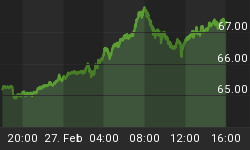It was a hit before the pandemic. Now, it’s a cult. TikTok’s numbers are staggering. The value of the company that owns wildly popular TikTok is said to have surpassed $100 billion in May thanks to private share transactions, but Western money remains elusive due to the toxic nature of the app’s connections to the Chinese government.
Still, ByteDance Ltd.--TikTok’s owner--is keen to appease Western money, which means appeasing Western regulators, and it has made several moves recently to distance itself from concerns that it is operating under the control of the Chinese Communist Party.
One of its recent moves was to install Kevin Mayer, Disney’s head of streaming, as its new CEO, earlier this month.
Also, as part of the new strategy, in mid-March the company said it would stop using China-based moderators to monitor overseas content. That same month, ByteDance said it would open a new facility in California, called the “transparency center”, which would allow outside observers to view how teams at the company moderate content.
Reuters reported that ByteDance has expanded TikTok’s engineering and research and development operations in Mountain View, California and had hired more than 150 engineers there.
For those rare individuals who are not familiar with TikTok, the app allows the user to create, upload and share videos up to 15 seconds long using various editing tools and effects and participate in lip-syncing and forms of entertainment against the backdrop of your music of choice.
It was a hit before the pandemic. Now, it’s a cult.
TikTok’s numbers are staggering.
Launched only in 2017, it is currently number one app downloaded in the iOS store, and it’s estimated that in the first quarter of 2020, more than 315 million downloads occurred between Google Play and Apple’s iOS store. Some 60% of its US users are aged between 16 and 24.
Even Islamic State propagandists are reportedly trying to exploit this sing-and-dance social media tool for the purpose of recruitment. Late last year, around two dozen ISIS-related accounts were removed from the platform.
ByteDance more than doubled its revenue from $7.4 billion in 2018 to $17 billion in 2019. The company made a net profit of $3 billion last year, Bloomberg reported.
However, as the app has soared to fame, it has had to grapple with a number of contentious issues. Several US government agencies, including nearly all branches of the military, have barred employees from downloading or using the app.
Late last year, the US Committee on Foreign Investment (CFIUS) launched a national security investigation into TikTok after lawmakers penned a letter to a US intelligence official demanding a security assessment.
In an open letter, two senior US politicians, Senator Tom Cotton (R-Arkansas) and Senator Chuck Schumer (D-New York) described TikTok as "a potential counterintelligence threat we cannot ignore."
Republican Senator Marco Rubio had also called for a CFIUS review of TikTok specifically, claiming there is “ample and growing evidence” that the Chinese government censors content on the platform.
“These Chinese-owned apps are increasingly being used to censor content and silence open discussion on topics deemed sensitive by the Chinese Government and Communist Party,” Rubio wrote.
Related: Could COVID-19 Lead To Authoritarianism?
As for TikTok, the lawmakers expressed concern that China's 2017 internet law forced companies in the country to cooperate with the Communist Party. They also questioned the company’s data collection practices to determine whether the Chinese government has any say in what content Americans see on the app.
So will a Disney figurehead help at all?
Reporting on Mayer’s appointment as TikTok’s CEO, CNBC wrote that his first task is proving to American lawmakers and regulators that they can trust the Chinese-owned app with their data. Yet, according to the company’s numbers, consumers don’t need any convincing.
A US-China ‘Cold War’ could be a fly in this multi-billion-dollar fly ointment, but nothing short of an outright ban and control of the internet in the US seems like to get hungry users to give up TikTok--especially under lockdown.
By Michael Kern for Safehaven.com
More Top Reads From Safehaven.com:
















